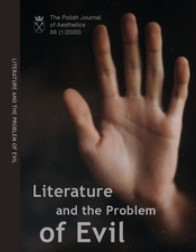Ivan Karamazov’s Euclidean Mind: the ‘Fact’ of Human Suffering and Evil
Ivan Karamazov’s Euclidean Mind: the ‘Fact’ of Human Suffering and Evil
Author(s): Kimberly YoungSubject(s): Metaphysics, Epistemology, Ethics / Practical Philosophy, Russian Literature, Theory of Literature
Published by: Wydawnictwo Uniwersytetu Jagiellońskiego
Keywords: Dostoevsky; Evil; Suffering; Euclidean Reasoning; the Crucifix;
Summary/Abstract: In The Brothers Karamazov, Fyodor Dostoevsky addresses the problem of how to reconcile God’s goodness with the evil in the world by comparing the metaphysical implications of Ivan Karamazov’s and the Elder Zosima’s Euclidean and non-Euclidean epistemologies. For Ivan, the moral opposites of good and evil cannot be reconciled, just as two parallel lines cannot meet (Euclid’s fifth postulate). For Zosima, the symbol of the crucifix represents a meeting of the parallel lines and the moral opposites.
Journal: Estetyka i Krytyka
- Issue Year: 56/2020
- Issue No: 1
- Page Range: 49-62
- Page Count: 14
- Language: English

